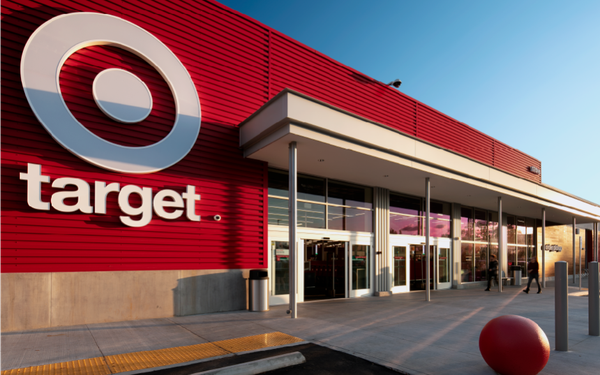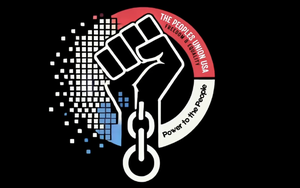
Consumers have long been
told that boycotts don’t work. But short-term economic blackouts might be rewriting the playbook in a world of viral activism and brand reputation wars. With millions of angry consumers
expressing support for today’s “economic blackout” – a commitment to not shop for 24 hours -- frustrated activists hope to deliver a strong message to corporate America: Bring
back policies supporting diversity, equity and inclusion.
It’s too soon to say if the Blackout will inflict financial damage. Publicly, companies aren’t required to reveal daily
sales numbers, and even if they cared to, those numbers wouldn’t be reflected in financial results for months. Companies that normally track daily transactions, including Adobe Analytics and
MasterCard SpendingPulse, for example, tell Marketing Daily they aren’t collecting data on the event.
advertisement
advertisement
But financial impact may be beside the point, anyway. “The Blackout
and other planned boycotts are different in that they are flash events, not long-term,” says Andre Banks, founder and CEO of NewWorld, a marketing and advocacy agency. “This is a new way
for people to remind themselves that they have a voice, and that -- even if it’s only for a day -- they can make corporate boards pay more attention to consumers than to President
Trump.”
The real impact is on brand value and reputation, and consumers’ growing contempt and distrust. NewWorld’s ongoing research “shows that trust in leaders is
tanking across all industries,” he says. And for marketers, that impact can be severe: “Brands are throwing all this money into building their story, and if people don't believe you are
who you say you are, the longtail impact is bad.”
Boycotts typically don’t work, says Kellie McElhaney, a lecturer and founding director of the Center for Equity, Gender, and
Leadership at the University of California’s Berkeley Haas business school. “The first big boycott in the last decade was against Nike and the Colin Kaepernick situation, and it had
zero impact financially. Nike lost some customers, but it gained more. The same was true of a boycott of Dick’s Sporting Goods when it stopped selling guns.”
But 2023 boycotts
aimed at Bud Light and Target regarding support for the LGBTQ+ community challenged that wisdom.
The “right” DEI stance may depend on cynical arithmetic for companies. If the
number of conservative consumers likely to oppose DEI is greater than the number of Black, Hispanic, LGBTQ or women customers who want brands to support DEI, rolling policies back makes sense. How
many people choose not to shop during the Blackout will help brands quantify that.
Hispanics have their own “Latino Freeze”
While
much of the attention has been focused on Black consumers and LGBTQ+ groups, Hispanic audiences are also diving into a “Latino Freeze,” with leaders, including labor rights activist
Dolores Huerta, calling for a boycott of Target.
“While older generations of Latinos were taught to be quiet and not make waves, this generation -- that Hispanic youth that make up 25%
of the total youth population -- are infinitely more active,” says Ana Valdez, president and CEO of the Latino Donor Collaborative. “They know their value. They know their rights and want
to be represented. And what I find most interesting is how they are uniting, raising their voices, calling press conferences.”
Its recent research finds that young Latinos (age 12-34)
increasingly aspire to be influencers, rising from 42% to 54% in recent years.
And while she’s not sure how many of these young Latinos voted, given unreliable exit polls, “we do
know they over-index, even compared to their peers within the same age range, on supporting for DEI, including equality, respect for all genders and the environment.”
Nor does she think
Target will scale back on commitments to Latino audiences. “Target has been an incredible ally of the Latino community for decades. They’ve portrayed us well. They have a lot of brands
from Latino creators. Despite this stand on DEI, they’ll continue catering to us in many different ways. “
Companies in the crosshairs have stayed mainly quiet, possibly to
minimize coverage. Neither Walmart nor Target responded to Marketing Daily’s emails.

Ironically, Target seems to be more vulnerable than Walmart, mainly
because more consumers perceive Walmart as a “bad” company (which routinely lands on various “Most Hated Brands” lists). In contrast, Target had been a “good guy”
brand.
“The difference is in the brand promises they make,” says Banks. “Walmart promises 'Everyday low prices,’ and it delivers that. Target promises, 'Expect more and
pay less.’ Target says, 'We are going to show up differently, and you’re not going to get the cheapest price, but not the most expensive, either.’
"And consumers did
expect more. So, when people see Target taking rainbow flags off the shelves, they say, 'You never meant what you said to us.’ They feel thrown under the bus. Walmart never claimed to have
these values.”
McElhaney points out that because Target has spent years investing in LBGTQ+ segments -- sponsoring Pride events, selling Pride merchandise, nurturing ERG groups and
developing a trans-friendly bathroom policy -- “the company’s back-pedaling away from a brand identity it had built so deliberately feels like a much bigger clash.”
She
believes the blackout and rolling boycotts “stand to make a big impact,” particularly when focused on Target, Walmart, Amazon and McDonald’s. But she also notes that many consumers
are exhausted.
“The news lately has given everyone whiplash,” she tells Marketing Daily. “Most liberals feel pretty disenfranchised, and with what's happening in the
government, they’re scared. But that doesn’t mean they feel powerless, and these events will begin to reveal just how much impact they think they can have.”
Banks agrees that
people are tired. “But they have the energy to try, and they’re looking for different kinds of solutions. It’s interesting that these aren’t top-down boycotts.”
The Blackout, for example, was started by John Schwarz, known as TheOneCalledJai on Instagram. Another stemmed from a church pastor, and was then adopted by the NAACP. “People want a way to
raise their hands and express outrage and hope that it grows into something bigger,” he says. “This is an innovative way to do it.”
Banks says social listening, especially on
BlueSky, TikTok and YouTube, will be the best way for marketers to assess the quality of consumer conversations about the Blackout. “It will be in more in-depth posts and podcast-style debates
that will show just how much people are getting into these topics.”